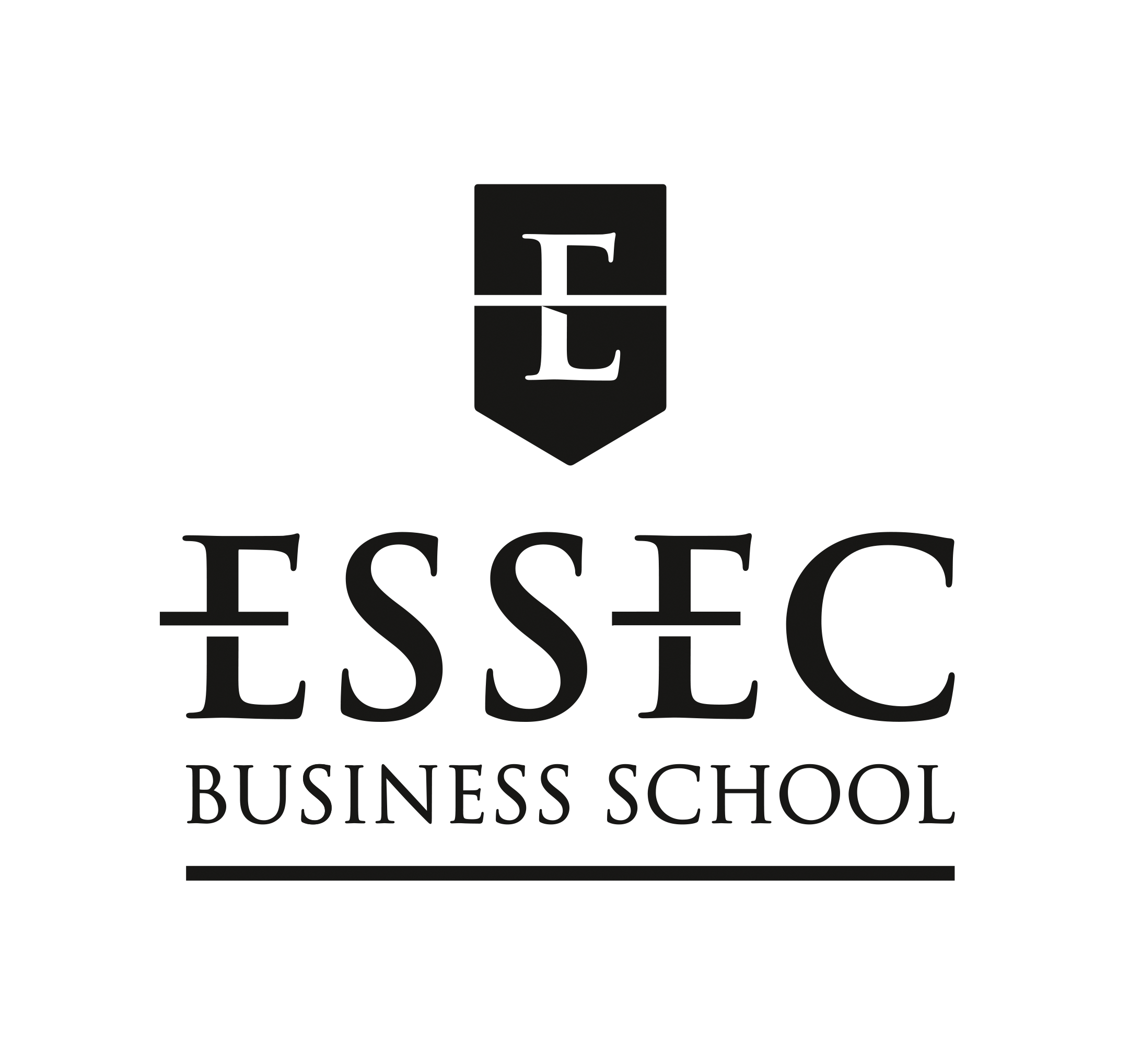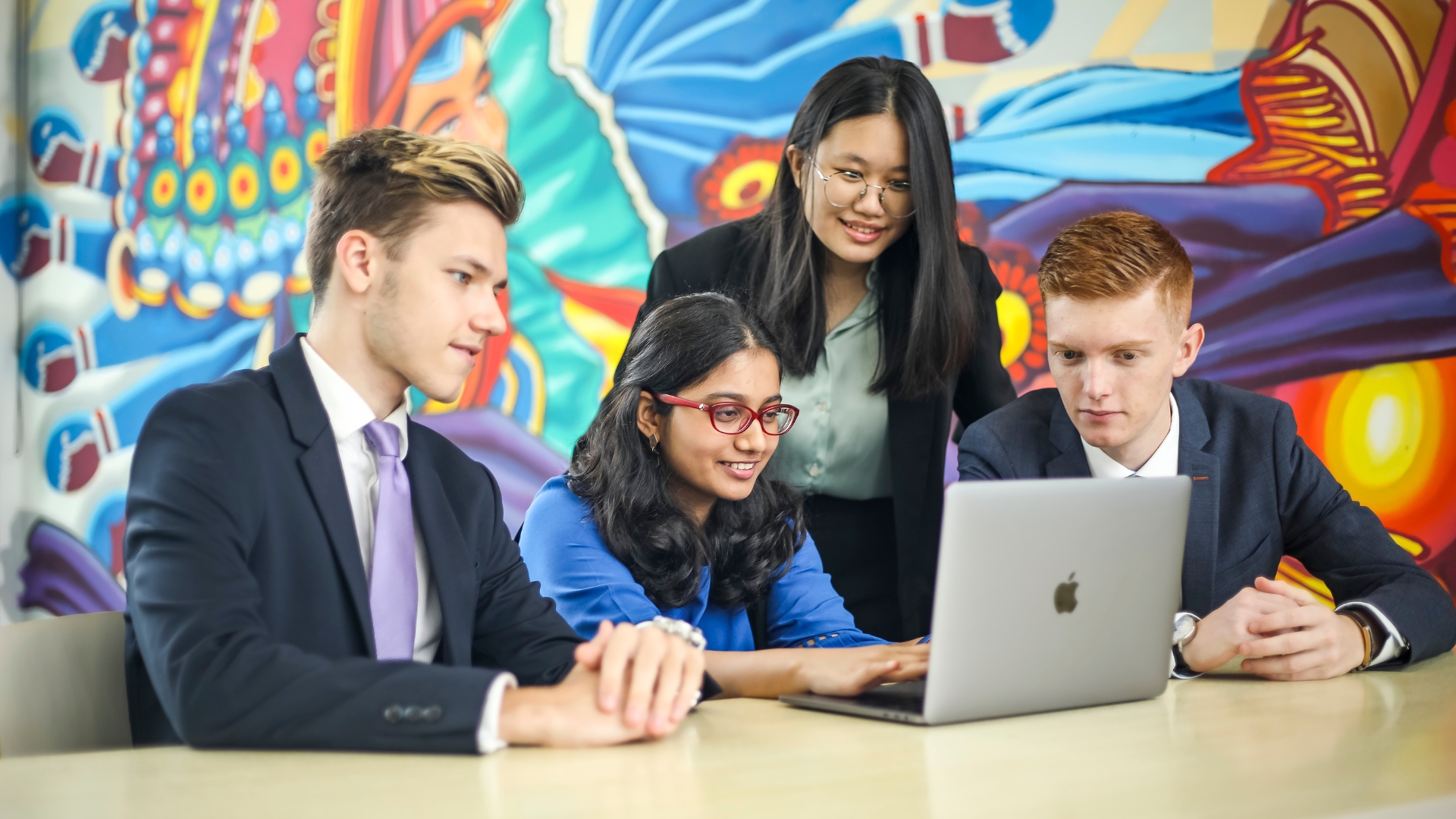What skills will be valued by tomorrow’s workforce? According to the World Economic Forum, analytical thinking and innovation, active learning, and problem-solving top the list.
Based on research from Deloitte, it’s the humanistic capabilities—curiosity, the desire to learn; imagination, the ability to see new possibilities; creativity, the capacity to develop new approaches; empathy, understanding the feelings of others; and courage, the confidence to act—that count.
The message is clear: in a world where we are becoming increasingly dependent on technology, it is not the hard skills but the intangible soft ones that will bring us the furthest.
The belief in this is why ESSEC Business School places almost equal emphasis on developing its Global Bachelor of Business Administration (GBBA) students as professionals and as people-centric leaders.
1 | Exposure to Diverse Disciplines and Perspectives
This is first and foremost seen in the diversity of experiences the GBBA program offers.
Acknowledging that the development of curiosity and imagination begins with expanding one’s worldview, ESSEC seeks to equip students with the full range of skills in finance to geopolitics–ensuring that they understand various disciplines and the tools available to solve problems.
GBBA students must also learn at least three languages: Business English, French for non-native speakers, and another language of their choice, such as German, Spanish, Italian, or Mandarin.
In addition, the school also offers plenty of opportunities to explore diverse cultures. Mobility between ESSEC’s campuses in France, Singapore, and Morocco allows students to live in different countries and immerse themselves in different ways of life.
With ESSEC’s over 175 exchange and double-degree partners in more than 45 countries, students are not limited to visiting just three locations but have adventures almost anywhere in the world.
Not that those at the ESSEC Asia-Pacific campus need to even leave the country for an international experience, GBBA student from Germany Julia Isabella Wunderlich muses. “Singapore is a very global and diverse country, so you will be exposed to many cultures,” she says.
This is even more so at ESSEC, which stands out from other schools for its “great diversity of student nationalities,” William Samuel Sebastian, who comes from Indonesia, adds.
“I’ve enjoyed interacting with classmates from across the globe, learning about the cultures, and enriching my perspective of the world,” he declares, noting that these interactions are facilitated by the intimate, close-knit community at the ESSEC Asia-Pacific campus.
2 | Creating Conditions for Creativity
Recognizing that different viewpoints fuel creativity, ESSEC actively encourages teamwork between students of different nationalities and sets the stage for them to discuss and debate during group projects or in-class presentations.
The benefits of this learning by doing pedagogy are threefold: besides having a platform to practice creative problem-solving, students also cement their business knowledge by applying it across real-world cases—and, in the process, hone their skills in communication, conflict resolution, and collaboration.
3 | Building Career Confidence
Career exposure is another area where GBBA students stand out. This is cultivated through active classroom participation and developed through ESSEC Career Services, which offers a suite of career preparation programs, including networking workshops and improving one’s executive presence.
Skills development also continues through ESSEC student clubs, which allow students to pursue their passion in sports, art, music, and industry while building connections and developing their leadership, organizational, and teamwork skills.
These experiences build students’ confidence to interact with interdisciplinary and multicultural teams—a trait Sagarika Majumdar, a second-year student from India, has found valuable in the workplace.
“All the public speaking I did in school held me in good stead during my internship when I had to relay information to my teammates or during a client meeting,” she recalls.
And she isn’t the only one—her classmate, Hiba Nizami from Singapore, concurs. “I have been told that my ideas flow smoothly, and my colleagues appreciate that I am not afraid to speak my mind or share ideas,” Hiba says.
4 | A Sense of Social-Mindedness
Finally, ESSEC also emphasizes the development of civic-minded and socially responsible leaders by weaving concepts of responsible leadership into its classes.
Interested students can opt for the Responsible International Leadership (RIL) track run with the Darla Moore School of Business in the United States.
All students must take a month-long humanitarian or social work mission as part of their three internships.
This mandatory requirement aims to bring awareness to the challenges others may face and educate students on how to make a stand.
But it also stands as a testament to how the program is not paying mere lip service to the need for social responsibility but actively inculcating qualities like empathy.
The world has noticed: ESSEC is ranked top amongst French business schools on the ChangeNow – Les Echos Start Ranking 2022 based on six criteria, including its ability to integrate impactful issues into its curriculum and involvement of student associations in areas of social impact.
Therefore, GBBA students can look forward to An enriching education that trains them professionally and prepares them as global citizens ready to take on the world.
RELATED POSTS
Highlights: Partnerships In Luxury Brand Management
Sonja Prokopec, Professor of Marketing at ESSEC Asia-Pacific, shares exclusive insights into how she selects partner luxury brands for the Luxury…
MMD Success Showcase with Prof. Gautam Kiyawat
Ranked #1 in Asia and #2 worldwide by QS in 2024, worldwide, learn about the MSc in Marketing Management and Digital (MMD) program and how the dual…
ESSEC Global BBA Students Share The Transformative Benefits of Travel
From finding inspiration to expanding their networks, hear from graduates on how traveling the world during the Global BBA program has transformed…
How Diversity Adds Depth to the ESSEC MiM Experience
Learn how the Master in Management program prepare students for global career success by fostering diversity and enhancing cross-cultural competence…
From Networking to Work Experience: How the ESSEC SMIB Gives Students an Edge
ESSEC Master in Strategy and Management of International Business students Shristi Khemka and Howie Chia testify that the program has shaped their…
Practical Lessons and Passionate Professors: The Impact of the MiM Experience
Student Ambassadors from different backgrounds testify to how faculty have made it easy to move into business school.








